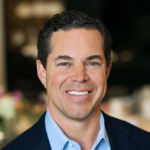Results by free negotiator show previous projections were overblown
By Matt Clark
San Diego Mayor Bob Filner announced Monday that his volunteer lease negotiator has struck a deal that is expected to save the city up to $15.8 million over five years with a new lease for at least 77,000 square feet of office space.
The city will pay $1.25 per square foot, down from the current $2.62 for the public utilities and engineering departments.
The new deal, brokered by Hughes Marino principal Jason Hughes, is expected to save $2.8 million in the coming budget year, even after accounting for moving costs from 600 B Street to 525 B Street.
“The savings would start as soon as we move out,” Filner said, adding that the move should be done by July 1, the start of the city’s next fiscal year. “We’re not going to even get charged for the new rent until we’re all moved in. So, Jason got a really good deal and we’re really grateful to him.”
The lease deal appears to back up Hughes in a public disagreement he had with Filner’s predecessor, Jerry Sanders.

Sanders in 2010 suggested that a new San Diego City Hall to house all the city’s downtown employees would save money over continuing to lease overflow space for workers. Hughes publicly questioned the city’s downtown office lease projections, and then in August 2011 offered to renegotiate the leases for free, an offer that would allow him to prove he was right.
The city, once it dropped the new City Hall idea, rejected Hughes’ volunteer offer and began hunting for a firm that would collect brokerage fees for the service. A U-T Watchdog story in May 2012 featured Hughes’ offer and Sanders’ rejection of the free service.
In April, the Watchdog contacted the new mayor for an update on Hughes’ offer, with a series of questions explaining the background. The next day, the city canceled the Sanders-era procurement of fee-based services and took Hughes up on his offer.
Asked on Monday why he didn’t act on the offer before then, Filner said he acted as soon as he found out about it.
“The staff work that had gone before with the previous administration and was carrying on, they did not really inform me of what was happening. I didn’t know how close we were, frankly, to these decisions and as soon as I found out, we acted quickly,” Filner said. “I talked to Jason and knew he could do this.”
The new lease, which is subject to City Council approval, would allow the city’s water department to accept payments from a ground floor office, and also provides employees with 24-hour access to gym equipment, Filner said. The building also has more modern floor plans, allowing the city to reduce the space it needs in addition to paying the lower cost per square foot.
Filner said the deal was driven by a glut of available office space downtown, the same factor Hughes cited in his criticism of Sanders’ estimates.
“Everybody said it couldn’t be done. I gave Jason only about a month to do this,” Filner said. “He did an incredible job, and it puts us in a position to do a comprehensive review of all the buildings we had.

Three years ago, the city’s plan for its downtown office space was to scrap its bland 1960s-era City Hall and build a sail-shaped, 19-story, 576,000 square-foot new city hall for $293.5 million. The city sold it through analyses suggesting it would save money — rather than costing money — by eliminating costly downtown leases.
In a July 2010 column in U-T San Diego, Hughes said the city’s estimates were way off, including its first projection of $2.74 per square foot to lease space in 2013.
“Once I cried foul, the research wonks scampered off, quickly returning with an estimate of $2.17 per square foot; lower but still way off-base,” Hughes said at the time. “At that point, I went public, reporting that the real leasing rate would be no higher than $1.50 per foot.”
During Monday’s news conference, Filner said he feels the current, dilapidated city administration building does not project a good image, and didn’t rule out trying to replace it.
Hughes said his reason for doing pro-bono work for the city stems from a sense of civic duty, but that it also allows him to ensure the city doesn’t lease more space than it needs, something that would drive up leasing costs downtown for his other clients.
“It’s not just this savings, it’s not just the commission I’m foregoing,” Hughes said. “It’s looking at all of my clients for the next 10 years, and making sure we set the bottom where it should be and not being inflated where everyone ends up spending more.”
Jason Hughes is founder of Hughes Marino, an award-winning commercial real estate company with offices across the nation. A pioneer in the field of tenant representation, Jason has exclusively represented tenants and buyers for more than 30 years. Contact Jason at 1-844-662-6635 or jason@hughesmarino.com to learn more.









